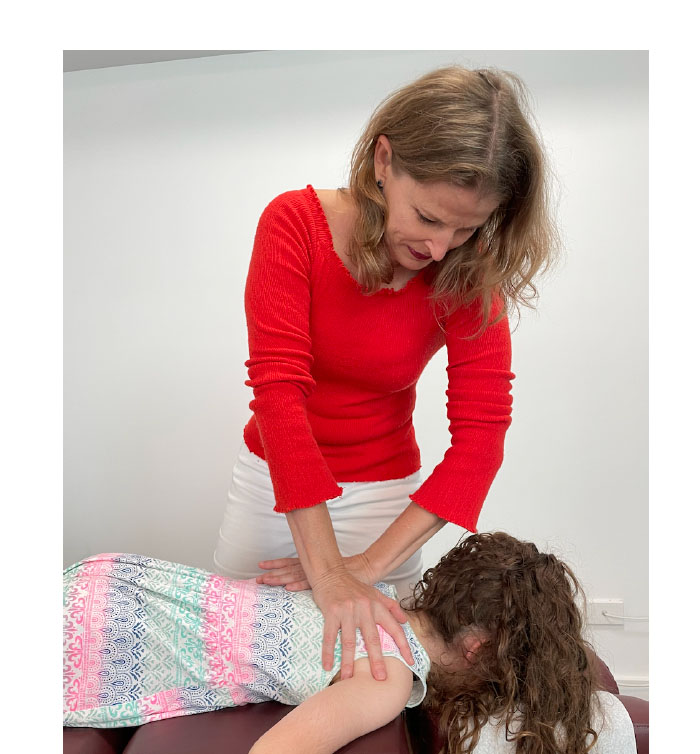Being Well
Optimising your best you


Your best you is living in a body that is fit and strong, can stand up to stress, is made from, and runs on good nutrition. To live optimally well we need to be well adjusted, well fed, well exercised, well rested and well balanced.
We need the messages from our brains to reach their destinations of muscles, joints, and organs without interference, and we need the part of our nervous system that controls our fight flight fight and freeze reactions to be in balance to allow us to stay calm, react appropriately, and rest and recover fully.
Chiropractic is a natural, drug free health care approach that gently removes interference from the spinal column and nervous system. This allows your body to work and maintain a state of optimum health.
Complete health care includes getting your spine and nervous system checked and adjusted regularly. Chiropractic adjustments have been shown not just to have an affect on the flow of information along nerves, but also on how well the brain processes that information.
Chiropractic Care is an option for everyone – babies, infants, children, pregnant women and older people.
Our bodies gives us small warning signs when it isn’t working at its best. These can include subtle changes in our posture, less ability to move freely or fully, feeling more tired, having less satisfying sleep, waking tired or needing more sleep the usual, having less energy for the things we love, having a lower tolerance level to stressful situations and being more susceptible to coughs and colds.
We often think about the obvious. We get ourselves checked and adjusted as soon as possible after big issues like accidents and injuries to help with the pain and to speed healing time, but overlook the less obvious build up of issues that gradually limit our movement and overall health.
When we ignore these warning signs, and live without regular care, it can seem like pain with movement is a normal part of daily life and is to be expected as we age. Ignoring them also leaves us more susceptible to hurting ourselves.
Learning to act on the small warning signs, and get adjusted as as they occur, rather than waiting for pain and inflammation to develop, is a much healthier approach to life.
Every cell in our body is made up of molecules that got there from the food we ate.
If we want to be well, we need to be well fed, to give ourselves the best building blocks to grow, thrive, repair and rebuild.
When it comes to food, moderation, quality over quantity and taking the time to eat well are the biggest keys.
Some of the most important basics are:
• Drinking enough water. Each day, our bodies need one litre of water for every 25kg we weigh.
• Not all fat is bad. Cell walls require good fat to keep them strong. Essential fatty acids are just that, essential.
• Salt matters. Heart disease is just one of the side effects of a diet too high in salt. Reading labels will help you stay healthy here. Choose the products with less than 120mg sodium per 100g food.
• Processed sugar has no nutritional value. It doesn’t only affect our ability to control our weight, but can also affect our sensitivity to things that trigger allergies.
• Fibre is important. It feeds and supports our good gut bacteria, it keeps us ‘regular’ and it makes us chew. Chewing is important to help us keep our chewing and swallowing muscles strong, as they play a big part in keeping our airways open.
• Make and take the time to enjoy good food. Keeping our nervous systems relaxed while we eat gives us the time to chew food properly, and helps us digest what we are eating.
• It is easy in a time poor society to get caught in a habit of eating ‘fast’, highly processed, nutrient poor food.
Remember, quite literally, we are what we eat.

Dr Alison Holden’s
Daily Stretch Routine
Being well exercised does not mean needing to be super buffed, or able to run a marathon at the drop of a hat.
Being fit enough to move well, with a good level of heart fitness to do the things we want to do when we want them is the aim of the game.
We have all been raised in the no pain no gain era. Thankfully this is now recognised as a less than healthy approach. These days we have technology to give us feedback. Heart rate monitors allow us to keep our efforts in healthy ranges, and heart rate variability meters warn us if we are overdoing it.
Your core muscles are important. They support your posture and allow you to move freely. The stronger your core the better your posture and the better your nervous system can work. As well as breathing, your diaphragm is your biggest innermost core muscle. Sitting straight allows it to move fully. Breathing in through a straw is a fantastic way to build its strength. planks, pilates, fitballs, and hula hoops are great for your outer core muscles.
Begin with small additions of incidental exercise into your daily routine. Use stairs rather than escalators, Don’t park right outside the door. Get off the bus one stop early. Add a brief stretching routine into your day to remind your brain of all your body bits. Moving everything every day also helps you notice quickly if something isn’t right.
Daily eye exercises will also help keep your skull moving. 5 of the 6 muscles that move your eyes, and one that closes it, attach into one of the most important bones in our skull. Making sure they are all as strong as they should be can help protect us against and heal us more quickly from concussions.
Find something you enjoy and then do it, keeping your heart rate in a range that doesn’t stress your heart too much. If something isn’t comfortable to do you wont like it. If you don’t like it you won’t do it. If you don’t like it, or if you wipe yourself out for days every time you do it, it will soon be the easiest daily habit to drop.
Exercise doesn’t have to be hard, or strenuous. It doesn’t have to take forever. But in order for us to be well, it has to happen.
Daily Breathing exercises are a great way to start your day, and equally a great way to wind down at night to get yourself ready for bed. If you find yourself awake through the night and unable to sleep, breathing exercises can also be of help getting you back to sleep.
Daily Breathing exercises can help reset bad breathing habits. Dr Alison's recorded breathing exercises take you through breathing in different body postures, allowing you to focus on breathing with the correct body mechanics.
Always done through your nose, using your diaphragm, keeping your breath low, slow, soft and silent, the various postures allow you to feel any restrictions in your breathing to help you retrain better breathing habits.
A small sequence is added at the end that stimulates many of your cranial nerves; the last of which is the ‘gentle face painting’.
They go for 18 minutes in total and are a great way to help you wake up to or wind down from your day, whichever fits best with your lifestyle.
To feel our best we also need to be well rested. In order to thrive our body needs down time to repair and maintain itself. The pace we live our life at changes with our age, our health, and the demands on us. Taking active control of the pace we live at can make all the difference to our ability to thrive.
It is so easy to overcommit ourselves to people and projects that leave us feeling time poor. This can lead to living in the fast lane and putting too much pressure on ourselves, leading to feeling burnt out. If we take the time to stop and look at our lives we can work out what our real priorities are. Making a conscious choice about where we want to invest our time and energy can make a big difference to our daily stress levels.
Taking a ‘Marie Kondo’ approach to our lives can help us clear out more than just cupboards. Looking at the things we have filled our time with and ask the questions, “Does it bring me joy?” “Is it useful?” “Does it add to the quality of my life?” If the answer to all three questions is no, then perhaps the activity has outlived its value for both our current and future selves.
Perhaps as Marie then does, let the activity go with love and gratitude, and free up your time and energy for other things.


Ultimately we all want a well balanced life. One where our stress levels are healthy, enough to stimulate growth without causing burnout, where we achieve what we set out to do and have time to enjoy the ride.
When it comes to goals, our focus should be on the process not the goal itself. If we are focused just on the goal and only do things until something is reached, we often miss out on the exponential growth that good habits bring with them with time.
Daily healthy habits, applied continually, are what lead us to our ultimate level of health allowing us to thrive rather than just survive.
Eating healthy food, Doing regular exercise. Maintaining a healthy weight Drinking enough water. Managing our stress. Resting when we need to. Protecting our sleep.
Together these are the daily habits that keep us well.

